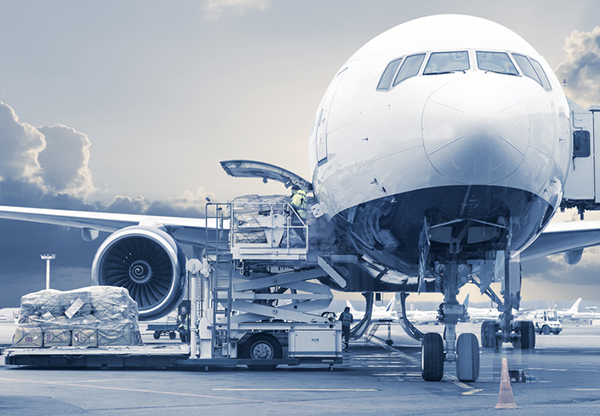Air cargo industry analysts observe that as ocean peak season cools off, air peak season heats up.
This year, air rates are feeling even more upward pressure than usual from reduced passenger jet capacity – which could be made worse by omicron fears – and congestion due to labor shortages among overwhelmed ground crews. Strict quarantine restrictions in places like Hong Kong are also complicating operations for many air cargo providers.
Niall van de Wouw, managing director of CLIVE Data Services in Amsterdam, says the air cargo market remains very demanding and constantly changing due to the regulatory COVID-19 landscape, outbreaks of new variants, and escalated vaccine distribution needs.
“And that means higher rates across the board,” he adds. “Matching capacity to need is going to be the key concern for shippers in 2022 – almost regardless of price.”
But there may be light streaming across the horizon, says Brendan Sullivan, Global Head of Cargo for The International Air Transport Association (IATA).
He sees improved cooperation across the logistics supply chain as governments and border authorities lead to the safe transport of millions of tons of live saving medical supplies and the delivery of millions of doses of COVID-19 vaccines.
“We succeeded in what was the most sophisticated global logistics operation ever undertaken but there were and continue to be challenges that need to be resolved,” he says. “Despite this, air cargo emerged from the pandemic even stronger and more agile than before. And as a result, is well positioned to support the global economic recovery and overcome future challenges.”
Addressing the capacity crisis, he points to a trend of “re-fleeting” by airlines.
“We are already seeing some great examples by Atlas Air, DHL, and Lufthansa,” says. “All of which signed new aircraft contracts recently. And there has been some interest in electric aircraft too, with UPS planning to purchase up to 150 electric cargo carriers. DHL Express is also ordering their first-ever all-electric cargo planes.
According to Sullivan, logistics managers may also mitigate rate hikes by agreeing to pay a premium for airline purchase of “sustainable aviation fuel,” initiated by industry leader, Lufthansa Cargo.
“And FedEx and DHL Express have committed to getting 30 percent of their jet fuel from alternative fuels by 2030,” he says.
Finally, says Sullivan, carriers have more opportunities to improve operational efficiency through modernization and digitalization – which should be a priority for bringing rates down.
“The biggest growth areas are in cross-border e-commerce and special handling items like time and temperature sensitive payloads,” he concludes. Shippers for these products want to know where their items are and in what condition at any time during their transport. That requires digitalization and data.”
SC
MR


Latest Supply Chain News
- How S&OP provides the answer to in-demand products
- AI, virtual reality is bringing experiential learning into the modern age
- Humanoid robots’ place in an intralogistics smart robot strategy
- Tips for CIOs to overcome technology talent acquisition troubles
- There is still work to do to achieve supply chain stability
- More News
Latest Podcast

 Explore
Explore
Business Management News
- How S&OP provides the answer to in-demand products
- AI, virtual reality is bringing experiential learning into the modern age
- Tips for CIOs to overcome technology talent acquisition troubles
- There is still work to do to achieve supply chain stability
- Blooming success: The vital role of S&OE in nurturing global supply chains
- Supply chain salaries, job satisfaction on the rise
- More Business Management
Latest Business Management Resources

Subscribe

Supply Chain Management Review delivers the best industry content.

Editors’ Picks





